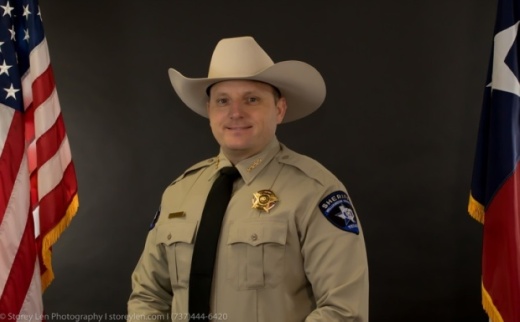In a Jan. 4 pretrial hearing, the separate legal teams for Chody and Nassour argued that the indictment was not specific enough to the manner and the means through which the crime was committed; this, they argued, rendered it impossible for the defense to build its arguments.
Specifically, the defense attorneys said their clients had a right to know with what, exactly, they have been charged.
“The bottom line is that my clients are entitled to notice,” said Joe Turner, Nassour's attorney. “We want notice, and we want to be able to prepare a defense.”
"This is one of the most insufficient indictments I've seen in 40 plus years of practice as a lawyer," said Gerry Morris, Chody's attorney.
The defense asked for more specifics to be included in the indictment, such as exactly how the evidence was tampered with and what legal theories the prosecution plans to present to the court.
Prosecutors from the Williamson County District Attorney’s Office argued in the opposite direction: They said the indictment was actually more specific than it need to be, according to state law, and that further details on the evidence and answers to their questions will be available to the defense attorneys through the discovery phase, which Harle approved to be handed over Jan. 4.
The indictment claims that Chody and Nassour engaged in criminal activity by destroying and/or concealing evidence specific to the Javier Ambler case, but since the alleged tampered evidence is in a digital format, it is difficult to narrow down into one incident, Williamson County District Attorney Shawn Dick said.
“This case isn't simply about one act or one thing,” Dick said. “It's about an amalgamation of the number of acts committed over a number of months in a number of different locations around Williamson County.”
Furthermore, the case will be heard in front of a grand jury in Travis County, which adds another layer of complexity, Dick said.
Because of this, the defense argued that there could be a case for double jeopardy if the grand jury were to indict Chody and/or Nassour for the same crimes. The prosecution responded by saying that it will deal with that scenario if and when it becomes the case, to which Harle agreed.
The defense also requested the disclosure of grand jury testimony—specifically, two—at the request of the individual who testified. The prosecutors argued that concealing the testimony was important to the integrity of the justice system but said they would like Harle to review all of the testimony transcripts and release any that he felt was appropriate, a request with which Harle agreed
“I never have and I never intended to try anybody sort of by surprise,” Dick said. “All we're trying to do is follow along, get the appropriate information, turn it over to the defense and let them have an opportunity to review it, analyze it ... and not to try the case by Twitter, to try the case by Zoom hearing.”
Chody and Nassour were indicted Sept. 25 for evidence tampering in the death-in-custody case of Ambler.
Ambler, a Black man, died in March 2019 after Williamson County Sheriff's Office deputies engaged in a 22-minute car chase into Travis County; Ambler ultimately crashed and then was tased four times by WCSO deputies until he was unresponsive.
Crews for “Live PD,” a television documentary series that follows law enforcement on nighttime patrols, were present at the event. They recorded but did not air the scene. That footage has since been deleted, per provisions in the show’s contract for unused film.
If convicted of these charges, Chody and Nassour could face punishment of two to 10 years in the Texas Department of Criminal Justice Correctional Institutions Division or probation and a fine of up to $10,000, Dick said.





